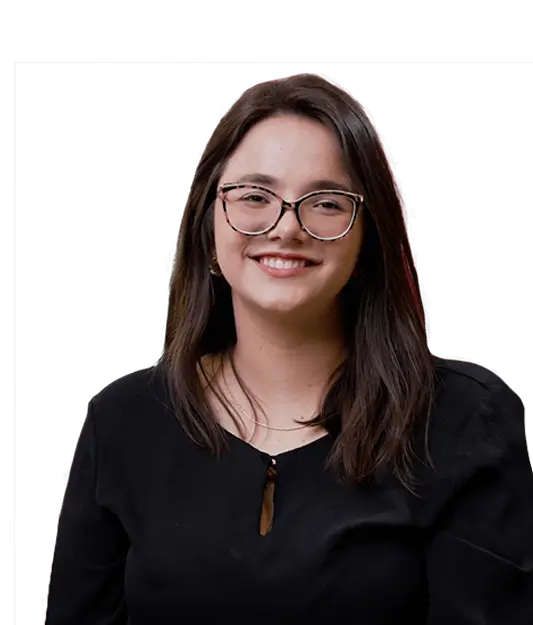Diploma in International Hospitality Operations Management Co-op
The Diploma in International Hospitality Operations Management Co-op Program is a two-year program designed to prepare students for a career in a variety of roles in Hospitality Operations Management. Students will gain the knowledge and business skills required to be progressive leaders within the fast-paced global hospitality industry, with an emphasis on Canadian tourism.


Fees & Facts
This two-year Co-op Diploma will prepare students for an exciting career in a variety of roles in Hospitality Operations Management. Students will gain the knowledge and business skills required to be progressive leaders within the fast-paced global hospitality industry, with an emphasis on Canadian tourism.
The program’s comprehensive curriculum brings the industry into the classroom and connects it with students through guest speakers, field trips and industry engagement. Graduates of this program will be fully prepared to step into key roles within both the front and back of a hotel and make an impact on the guest experience.
Program Outcomes
At the end of this program, students are expected to develop a range of specific and generic skills, covering the following fields:
- Define and describe the knowledge of the nature of hospitality and hospitality products from both local and international perspectives
- Apply the fundamental systems and procedures required to run a hospitality or hotel operation, such as Front Desk, Food & Beverage, Accounting, Marketing
- Evaluate global hospitality guest profiles and expectations
- Apply the knowledge of organizational behaviour at individual, interpersonal and collective levels
- Evaluate local and global trends and issues related to the hospitality industry
- Incorporate fundamental marketing concepts, terms, and ideas into the operations of the business
- Discuss the value add and the potential of Information Technology
Learning Partners
innRoad aims to streamline operations for hoteliers and increase revenue through innovative software. This tool provides students with hands-on experience for managing inventory, processing reservations and generating financial reports that detail operational results. Through innRoad’s simulation tool, students are able to gain valuable insights into how hotels are able to optimize performance and improve guest experiences.
The program is powered by Knowledge Matters’ Case Simulations Hospitality Collection. The Hospitality Collection offers students experiential learning on the fundamentals of hotel management and lodging operations via interactive, visually immersive simulations.
This program is powered by Perlego. It is a digital online library focusing on the delivery of academic, professional and non-fiction eBooks. It is a subscription-based service that offers users unlimited access to over 2,000 academic publishers and offers an impressive 600,000+ professional and academic titles across 900+ different topics and subtopics for the duration of subscription.
Co-op Experience
The co-op term provides you with an opportunity to integrate academic studies with related employment experience. We provide co-op* placement policy in the field of studies.
The co-op work experience could include positions in the following areas:
- Hotels and Motels
- Food and Beverage Establishments
- Travel Agencies
- Restaurants, Bars and Pubs
- Sport and Entertainment Establishments
- Golf Clubs and Recreation Facilities
- Amusement Parks
Common major activities may include, but are not limited to:
- Provide travel information to clients regarding destinations, transportation and accommodation options and travel costs, and recommend suitable products.
- Plan and organize vacation travel for individuals or groups.
- Investigate new travel destinations, hotels and other facilities and attractions.
- Compile and check daily record sheets, guest accounts, receipts and vouchers using computerized or manual systems.
- Prepare reports, presentations, documents, and correspondence containing descriptive, analytical, and evaluative content related to business, technological, and operational activities.
The length of the placement will be 36 weeks (20 hours per week).
You will have at least 720 guided learning hours followed by 720 practicum hours with an established business.
The work placement experience will help you apply the theories you learn to practical business situations. We will help you secure your work placement by sending you for interviews.
At the end of this program, students are expected to develop a range of specific and generic skills and knowledge, covering the following fields:
1. Introduction to Hospitality & Tourism
The aim of this module is to provide an understanding of the nature of hospitality and its products from a local and international perspective. You will get a holistic understanding of the industry, including the impacts of hospitality on destination economies, communities and fragile environments. You will be expected to take a critical perspective on the effects of hospitality on your own country and consider how hospitality can have a strategic developmental function.
2. Hospitality Career Readiness
This module will help you develop and enhance your written, verbal, interpersonal communication skills, time management skills and presentation techniques, to ensure success in any business environment. You will also learn to use Microsoft Office to help you operate more efficiently and be more productive.
3. Front Office Operations
This module introduces the systems and procedures required for front desk office operations. It also emphasizes the importance of high standards in the provision of customer service. You will develop knowledge and skills regarding reception procedures and understand the key legislation that relates to reception procedures. Finally, you will evaluate the suitability of different procedures for a range of hotel outlets.
4. Food and Beverage Operations
The aim of the Food and Beverage Operations module is to provide an understanding of the operational aspects behind this and how to cater to an international clientele in a range of establishments, in order to encourage an appreciation of the origins of food and beverage and to understand the various factors involved in meeting customer needs.
5. Food Sanitation, Safety and Health
This module aims to make an important contribution to the supervisory aspects of food hygiene and safety. Supervisors with food safety and health and safety responsibilities must ensure that all staff operates in a safe, hygienic and efficient manner. The overall aims of this module are to ensure you are familiar with key aspects of current legislation, good practice and health, safety and food safety issues.
6. Customer Service
The aim of this module is to provide a better understanding of what customer service is and how this can provide a quality product or service that satisfies the needs/wants of a customer. It also emphasizes effective communication skills in customer relations and services and you will learn how to deal with various customer-related situations.
7. Organizational Behaviour in Hospitality Industry
This is an introduction to the basic concepts and topics in organizational behavior (OB). This module focuses on OB at three levels: individual, interpersonal and collective. At the individual level, you will cover decision-making, motivation and personality; at the interpersonal level, you will cover power, influence and negotiations.
8. Hospitality Accounting
This module is designed to give you basic knowledge of the cyber world. This module will enable you to understand the principles of cyberattacks, the darknet, hackers’ motivations and various advanced technologies.
9. Business Environment
The aim of this unit is to provide an understanding of different organizations, the influence of stakeholders and the relationship between businesses and the local, national, and global environments. In this unit you will consider how different market structures shape the pricing and output decisions of businesses, as well as other aspects of their behavior.
10. Project Management
This course introduces concepts in a team-based environment and helps develop essential communication, negotiation, and decision-making skills that are necessary for effective project management.
11. Introduction to Marketing and Branding
This module is designed to provide you with the skills to build a customer profile and analyze the digital market. The module will enable you to understand the principles of digital advertising, the key elements of branding and competitive analysis.
12. Information Management
The aim of this unit is to show how communications, knowledge and information can be improved within an organization by making better use of IT systems.
13. Work Placement (Co-op)
After students successfully complete the academic requirements of the module, they are required to complete 720 hours of program relevant work placement in a professional setting. Although skills required for the job will vary depending on the Work Placement site, the key responsibilities include being supervised by a placement supervisor at all times, observing all workplace and school safety and security procedures, dressing appropriately, interacting professionally with staff at work-placement, learning about the work environment, and participating in the daily routine as required by the employer. Work Placement is part of this program, where the theoretical components of the program are incorporated in practical learning situations and encourages students to apply their skills to facilitate business operations. The career service department will support students in securing a placement. After completion of their practicum students submit their placement report and an evaluation form completed by the supervisor to be successfully considered a graduate.
- Ontario Secondary School Diploma or Equivalent or Mature Student*
- Age 18 or older
For non-native English speakers:
- Successful completion of TSOM EAP Level 3 or
- Have the required IELTS 5.0 score or equivalent or
- Pass the TSOM English Assessment
*Mature students must pass a Wonderlic Scholastic Level Exam and successfully complete an interview conducted by Toronto School of Management’s Admissions Department.
Computer Use Expectation
In order to successfully progress through your studies at Toronto School of Management (TSOM), it is recommended that you have access to a personal computer or laptop. TSOM offers access to computer labs on campus, but availability cannot be guaranteed, and some program software may not be available on all open access computers.
Students must take and successfully complete all modules to be awarded a Diploma in International Hospitality Operations Management.
Weightage of each assessment:
- Individual assessments – 50%. Each module would have 2 assessments (25% each) in the form of either quiz, case study, presentation, essay or project;
- Final Examination – 40%. Conducted at the end of every module, consist of multiple-choice questions, true or false questions short answers and essay questions.
- Participation Grade – 10%. Students are expected to attend all classes and participate in class by completing homework assignments and contributing to class discussions and all other class activities. Active preparation for classes and participation is encouraged. Participation will be evaluated at the end of each module using a rubric.
- Placement Report for Work Placement – 100%. Upon completion of required hours each student is required to submit a co-op evaluation report which is assessed by Career Services to determine if student met outcomes of co-op placement.
Graduates of this certificate can expect career opportunities under NOC 6311, 6312, 6313, and 6314 which includes positions such as:
|
|
Jazheel, our student in the Diploma in Hospitality & Tourism Management Co-op program from the Philippines, tells us why she chose to study at TSOM and provides us with tips for aspiring international students.
May Malihan
As a young professional, May wanted to expand her horizons and to have a formal education in Hospitality and Tourism. She chose TSOM after learning about its accolade as the Best Hospitality and Tourism Post-Secondary Education Institution in Ontario last 2020.Nathaly Cuadros
Nathaly spent most of her life in Spain and there she studied at a university and acquired a bachelor’s degree in Tourism. As a degree holder, Nathaly felt that she needed something new, which is why she decided to study at TSOM.






